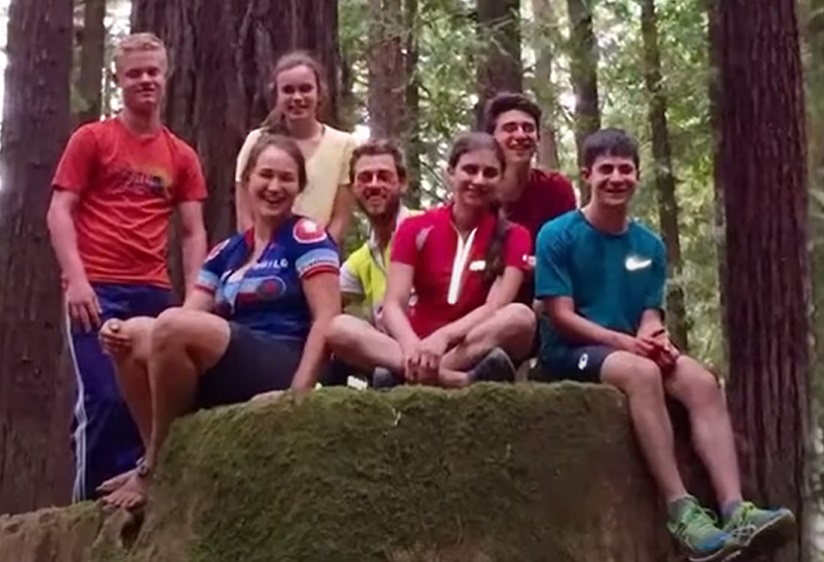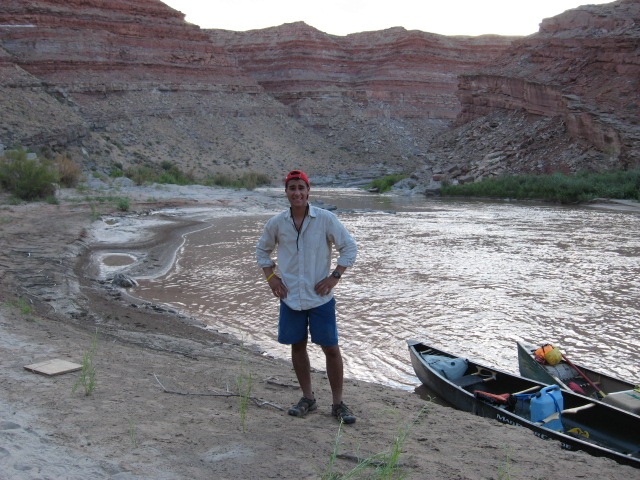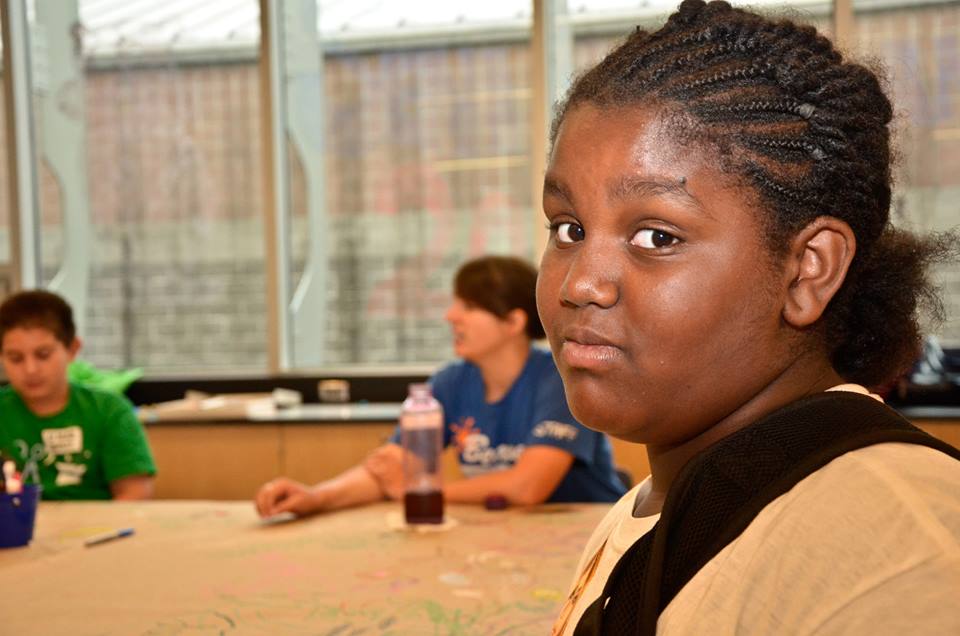
Wildflower Camp Foundation Helps Families Bloom After Loss
Wildflowers are often the first sign that nature has rebounded after a devastating forest fire. This idea: that beauty can come in the face of devastation, is the inspiration behind the creation of the Wildflower Camp Foundation, which sends bereaved children from the Greater Boston area to summer camp.
Why summer camp? Losing a husband and parent hurts and while you’re hurting, you must still take stock and rebuild the family unit and the psyche, too. This is not a small task, but one which can reveal inner strength and resilience. Something like those brave beautiful wildflowers that dare to show themselves after a tree-filled forest burns down.
Losing a husband, losing a parent: who can say who suffers most? Parent or child? Anything that gives respite from the pain, or helps families work through the pain to rebuild a new family construct is a tremendous gift.
That is why Kars4Kids did not hesitate to approve the Wildflower Camp Foundation’s small grant request. We wanted to partner with this venture, however we could. The kids get a break from the pain. The parent gets some time to grieve in private and work out the logistics of moving forward as a single parent.
It’s a couple of weeks, but an important couple of weeks. It’s throwing a life preserver to a struggling family. There is no doubt this is important work.
We spoke to Laura Krotky, Director of Communications at the Wildflower Camp Foundation to learn more:
Kars4Kids: In a video clip about the Wildflower Camp Foundation, Donna Sharff, a bereavement specialist, says, “Kids always need a break,” in reference to children mourning the loss of a parent. If kids always “need” a break, then do they also need time to mourn? How else would they process the loss of a parent?
Laura Krotky: Healing from loss is a process that involves time to mourn and time to rebuild without the presence of your loved one in your life. Both parts are necessary to restore a healthy life after loss. This is especially important for children who also need to attend to their own development as a child. They grieve differently than adults with moments of grief throughout their childhood and into adulthood interspersed with attention to their everyday life. At home there are many reminders of their loss and hopefully opportunities to grieve surrounded by family and friends. Grieving does not stop when children go off to camp but it may pause as they enter a carefree environment and focus on new adventures. This “break” allows them to build resilience and restore their lives which itself is a part of the grieving process.
Kars4Kids: In the campers’ stories section of the Wildflower website, camper Eli is described as protective of his mom, and wanting to step in and fill his dad’s shoes. Is this a common experience for the children you serve?
Laura Krotky: It certainly happens a lot where the child feels protective of the surviving parent, wanting to ease their burden by helping out, and at times taking on some of the responsibilities that would have been carried out by the deceased parent. This may be more prevalent for children who are the same gender as the parent who has passed and in only-child families.

Kars4Kids: The remaining parent has to work and isn’t so available for the children who obviously aren’t in school during summer vacation. That’s already a good reason for kids to go to summer camp. But it must be difficult being the parent who is “on” all the time. Do you get feedback on that score?
Grieve, Replenish, Restore
Laura Krotky: Yes…our end of summer interview asks that parents reflect on how their summer was affected by the gift of camp for their children. They often comment on how they were able to rest and renew in a way that isn’t possible when they are parenting 24/7. Many report that they are able to more fully process their own grief, attend to projects that they have needed to put off, reconnect with friends and even travel. Some even use the time to take coursework to advance their career. In addition, just knowing that their children are happy and thriving while at camp is enough to begin helping a parent “let down,” grieve, replenish and restore.
Kars4Kids: Do parents use the time their kids are in camp to grieve in a way they can’t when the kids are around? Do some of them use the time to socialize, date, go away themselves? Is this something they might not feel they have permission to do around their children?
Laura Krotky: Often we hear/see parents who need to be stoic for their children, so when the kids are away, it does afford these parents the opportunity to let down, but also to recharge as well. Certainly, some parents use the time to be social with friends, travel, date, etc. All of these are just so much easier when they have fewer childcare responsibilities, even if just for a couple of weeks. But we find that they often miss their children dearly as well!
Kars4Kids: Do the children you help tend to get homesick more often or more severely than other campers? It would seem their home lives may not be as secure as children with two living parents. Is this a factor in homesickness?
Laura Krotky: We work with our camps to prepare them for issues that our campers might face, such as homesickness. Separation issues are very common for children who have lost a parent. The unexpected loss of a young parent is unsettling for children and adults alike. When something this traumatic happens in life It makes us feel insecure, uncomfortable, shakes our equilibrium. We support/coach our parents on how to communicate with their children so as to minimize bouts of homesickness. With the support of family and the camp staff, separation anxiety can be softened and children go on to have wonderfully happy summers at camp.
Kars4Kids: Are the Wildflower campers given some sort of opportunity to talk about their grief or otherwise give expression to their loss at camp? Is this difficult for the other campers?
Laura Krotky: Many of our campers report that traditional camp is a place where they can “forget” about their loss for a brief time—enjoying a respite from their loss and being just another kid, not the kid who lost their parent. They may or may not chose to share their loss with other children. We do select nurturing camp environments, especially when the loss is recent. The staff have been made aware of the camper’s situation and loss, and will be sensitive around the issue, being aware of the impact on bunkmates, if any, and prepared to be supportive of the Wildflower camper as moments of grief occur.
When a child has experienced a difficulty processing their grief while at camp, the camp director and/or staff do a great job supporting the child through the difficulty. In addition to their traditional camp experiences, many Wildflower campers attend bereavement specialty camps, where the opportunity to talk about their grief is done in a caring, trained, supportive environment. This is a place where they can come together with other children who have suffered losses. It can be very comforting to know that you are not the only child who has had such a traumatic experience as a child.
Wildflower Matches Kids To Camps
Kars4Kids: The story of Josephina was especially awe-inspiring for the way Wildflower matched her up with the right camp, though she was already in a summer camp: the least expensive one her mother could find, a camp that wasn’t making Josephina happy at all. That is just an amazing story of empathy, of Wildflower really caring about this child and her outcome. How does Wildflower accomplish the matching process for prospective campers? What is it you look for in matching campers with camps?
Laura Krotky: We have a lot of experience with different camps, so we can often suggest a camp that might not have been considered by the family, especially if there are financial limitations. We also rely on the advice and expertise of camp placement advisors, who provide their service free of charge to Wildflower families. We factor in the child’s interests and strengths, goals that the parent hopes the child will achieve, and needs of the parent around care (i.e. Early drop off, bus service, overnight versus day camp). Our camp advisors are able to hone in on the key factors that would determine a great “camp fit.”

Kars4Kids: How many “wildflowers” have you sent to camp this summer? Do you have a waiting list?
Laura Krotky: In the summer of 2016, we sent 57 children to a wide variety of overnight and day camp, often providing multiple camp experiences for children who need coverage all summer due to their parents’ work schedules. Experiences included a service trip to Chile, bicycling trips to the Pacific Northwest down to California and Nantucket, service trip to Mississippi. We also provided for wonderful day camp experiences at local camps, providing bus transportation if needed. We did not have a waiting list this year but anticipate growing our numbers substantially in the next 3 years. We know there are many other families in need of our services so we are doing some outreach to find additional families who can benefit from our support.
Kars4Kids: Cyndi Jones, President and Founder of Wildflower Camp Foundation describes her own experience as a newly bereaved mom, ” I had an internal sense of being held by the world, despite how difficult life had become.” Of all the kindnesses Jones received during that terribly dark time for her family, was it camp tuition that helped them most? If so, why?
Laura Krotky: Cyndi was able to send her children to camp due to the generosity of several camp directors who provided them with camp scholarships. There were many kind offers of support over the 10 years that Cyndi was a single parent that helped the family tremendously. But Cyndi felt that the unusual combination of help provided to both the children and herself though her children participation in camp and its lasting impact, made this a worthy cause to replicate for other families that were in her shoes.
Kars4Kids: Who, in your experience, benefits most from the foundation—the moms or their children?
Laura Krotky: We could argue that it is the children who benefit the most, but in reality, it is truly both parents or guardians and children (we have many Fathers and in some cases, grandparents or other family members who have stepped in to raise the child following the loss), who benefit from this gift of camp.
Kars4Kids: What is the goal of the Wildflower Camp Foundation going forward?
Laura Krotky: The Wildflower Camp Foundation envisions a world where all children and families who experience the loss of a parent receive the support they need to thrive. Wildflower is dedicated to serving children and families who have experienced the loss of a parent. By providing the gift of camp and enrichment opportunities for children and consistent support and respite for parents, families are able to strengthen their resilience and create positive opportunities for the future.
Looking towards the future through a recent strategic planning process, The Wildflower Camp Foundation remains committed to its core mission of providing the gift of camp to bereaved children. There will be an emphasis on strategic outreach, increased visibility, and a steady growth in the number and diversity of families served. We are also committed to broadening our program to more deeply serve grieving families with new initiatives and services through strategic partnerships, to be initiated over the next 3 years as funding is available. Some of these pilot programs include help to our families as they launch their teens into college or full-time work and career counselling and guidance for our parents who may have just been thrust into the role of bread winner for the family.